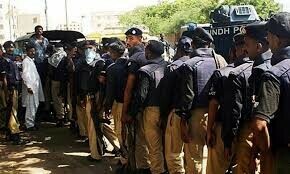LAHORE: The 12th Annual Thaap conference, entitled Indus Valley (Harappa) Culture: Its legacy and Relevance, opened on Friday with the researchers reading their research papers at Thaap Secretariat, Gulberg.
The first day featured the inaugural session, exhibition, and three paper reading sessions, which were attended by leading architects, archeologists, historians, cultural experts, academics and students, says a press release.
In the opening session, Mehreen Mustafa, the honorary secretary to Thaap, welcomed the conference participants and revisited the incredible journey of Thaap.
Prof Pervaiz Vandal spoke of the Harappan culture in general. He stressed the decentralised governance system, saying that a nonviolent society based on trade had solution for the contemporary problems of urban sprawl and conflict resolution.
This was followed by the painting exhibition by Abdullah Ali Kazmi on the theme of dance, women, and the moon.
While shedding light on the topic of the conference, Prof Vandal said Harappan civilisation had an expanse area of nearly 1.6 million square meters, which was more that whole Eastern Europe and double the size of Egypt.
“There is dire need to discuss and explore the works on this ancient civilisation as it is one of the most significant civilisations of the world, which was conflict-free without any major war for a span of several centuries, thanks to its highly civilised conflict dispute resolution system.”
Mr Vandal said trade was the main source of earning of Harappans, which needed peace as the foremost component.
Renowned historian and archaeologist Dr Saifur Rehman Dar was the chief guest of the inaugural session of the conference. He talked about the role of the Punjab Archaeology Department and urged it to play an active role for excavation and exploration of the sites related to Harappa. He acknowledged the efforts of Thaap for organising the conference.
The three paper reading sessions were chaired by prominent archeologists and historians, namely Prof Dr Mohammad Rafique Mughal and Mian Ijazul Hasan and writer and theatre director Shahid Nadeem.
The first paper reading session was chaired by Prof Dr Mohammad Rafique Mughal, the professor emeritus of archaeology, Boston University USA, former DG of Archaeology Pakistan. The topic of his paper was historical contextualisation of gender dynamics in Punjab.
Dr Tohid presented his paper in Punjabi language and explored “the Gender Dynamics in Punjab from Punj Phol Rani of Harappa in Heer Siyal”. He described the folktales related to Punj Phul Rani an artifact of Harappan civilization and symbol of the status of women in Harappan civilization. He stressed to establish a Harappan study centre at universities so that young students could explore the ancient culture in detail and decipher the language, culture and civilisation further.
Prof Dr Faraz Anjum spoke on the exploration of Pakistani identity through the ruins of Harappa. He drew a comparison of cultural identity in the context of the ancient civilization. The topic of his research was “Dancing Girl or Bearded Priest on Pakistani identity through the ruins of Harappa civilisation”.
He presented a detailed discourse on cultural identity before and after the creation of Pakistan and gave references to leading archaeologists, historians and literary figures.
Mian Ijazul Hasan, the educationist, artist, art critic and political activist, chaired the second session of the conference in which Dr Anila Zulfiqar presented her work on the comparison of figurines from Mohenjodaro and Ghoray Shah. Waqas Manzoor presented his paper on Punjabi folk toys as cultural artefacts and Prof. Dr. Kanwal Khalid talked about the structural analysis of the comparison of Indus valley and Easter Island scripts.
Shahid Nadeem, the leading playwright and executive director of Ajoka theatre, chaired the third paper reading session with presentations by M Waliullah & Dr Zakirullah on the field survey of Harappan and Pre-Harappan sites in DG Khan, and Syed Hassan Haadi and Syeda Fatima on the living culture of the Indus Valley (Harappa).
Published in Dawn, November 18th, 2023










































Dear visitor, the comments section is undergoing an overhaul and will return soon.